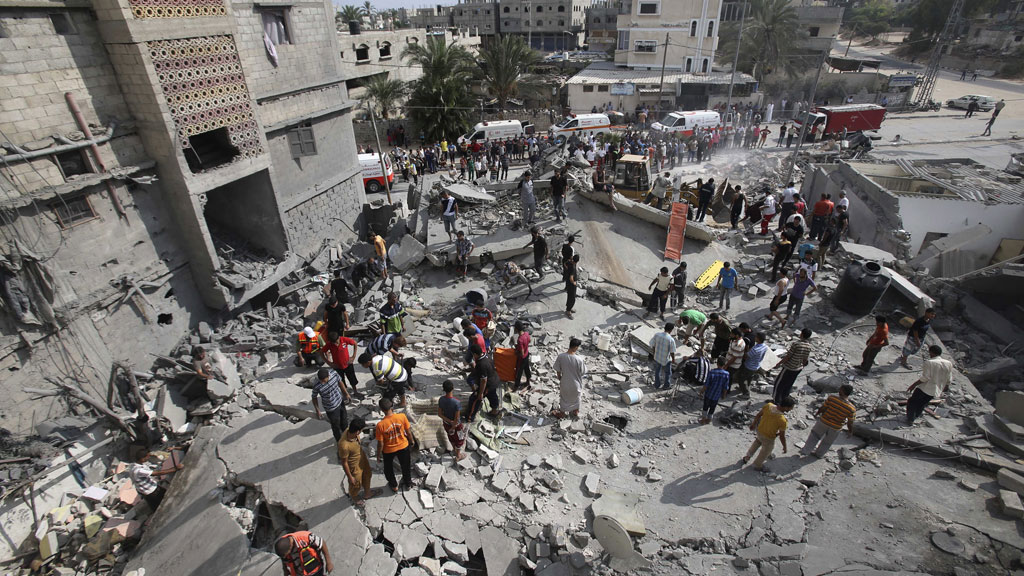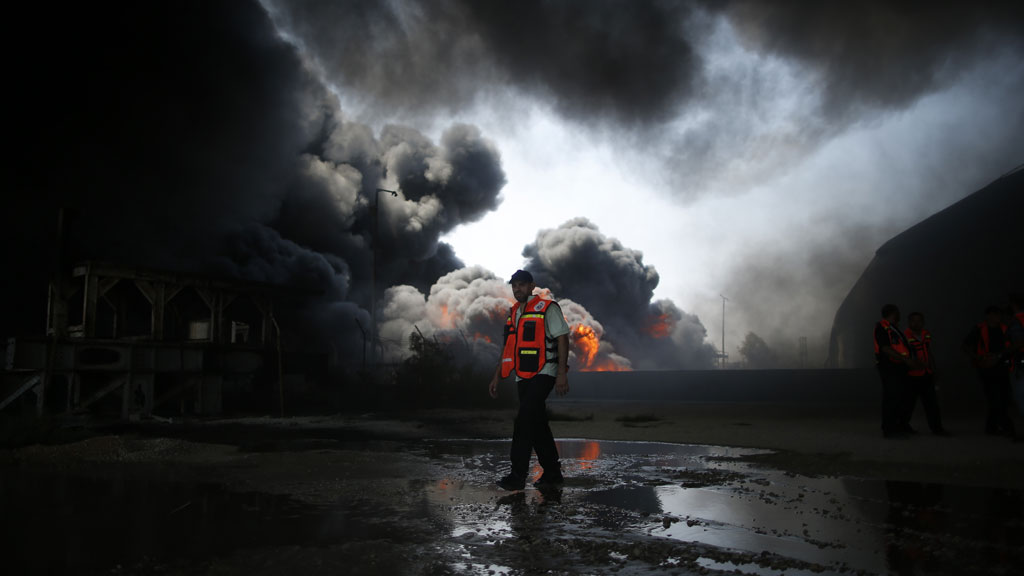Gaza’s infrastructure: the cost of war with Israel
As the United Nations strive for a ceasefire between Israel and Gaza, the impoverished enclave faces a daunting recovery, such is the scale of damage after three weeks of fighting.

Israeli artillery has shredded entire neighbourhoods and air strikes have pounded the scant infrastructure that barely kept the crowded strip of 1.8 million people running even in peacetime.
According to the UN, at least 3,695 homes have been completely destroyed while another 4,235 are damaged, but not beyond repair.
Bombs have pounded 133 schools and 22 health centres, stadiums, playgrounds, mosques, roads, power and water supplies, phone towers, communications centres and government buildings.
The Palestinian housing minister estimated the costs of repairing homes far surpassed £472m, according to Reuters. Mufeed Al-Hasayna said: “We cannot make a definite estimate under fire […] Once the war is over, the ministry plans to call on all the countries of the world to assist in the rebuilding of Gaza”.
The costs of rebuilding are said to amount to the whole of Gaza‘s annual budget, although he said the full extent of the damage could not be calculated until the conflict was over.
Ghanem Nuseibeh, founder of strategy and management consultancy Cornerstone Global Associates, has suggested the costs of reconstruction could be in the region of £3.5bn so far.
Preliminary calculations we are doing indicate cost of Gaza reconstruction in region of US $6 bn if bombing stops now. #Gaza #Israel
— Ghanem Nuseibeh غاÙ?Ù? (@gnuseibeh) July 29, 2014
Gaza reconstruction equivalent to full GDP for 2013. No doubt that significant foreign assistance is needed. #Gaza
— Ghanem Nuseibeh غاÙ?Ù? (@gnuseibeh) July 29, 2014
Despite the shelling, Israel must continue to supply electricity to help Gaza reconstruct itself. Under the Oslo Accords, Israel is obligated to provide and allow access to water resources.
Major areas affected include:
Energy sector
The Gaza Power Plant (GPP), the area’s only power system facility, was knocked out overnight, and could be out of action for a year, the local energy authority said. The power station supplies around 30 per cent of Gaza’s electricity, while ten lines from Israel provide another 62 per cent and two lines from Egypt deliver around eight per cent.

According to the Israeli Defence Ministry, the electrical sector in Gaza is divided between the Energy Authority and the city municipality, which has accumulated debts of up £177m to the body.
Water supplies
Gaza’s main water supply and wastewater infrastructure is nearing collapse, the UN said. Due to heavy fighting, the systems are said to be inaccessible for repair, leaving almost 1.2 million people deprived of drinking water as a result of accumulation waste and sewage damage. The Emergency Water and Sanitation-Hygiene Group (EWASH) reported that 50 per cent of the sewage pumping water filtration systems no longer operate.
The only other water supplier for Gaza is Israeli company Mekorot which sells the region 4.2 million cubic metres of water a year. Israel had also agreed to sell Gaza 5 million cubic metres of desalinated water annually, but the infrastructure work for conveying the water has yet to be completed.
Communications
While Hamas-run channel Al-Aqsa TV and Al-Aqsa Radio were both targeted, it continued to broadcast while the radio fell silent. However, most domestic connections are reliant on Israeli company Bezeq while all international connections continue under Palestinian firm PALTEL. Jawwal is the only Palestinian company that provides cellular services. An estimated 20 to 40 per cent of Palestinian mobile phone users still use Israeli cellular service.
Read Jon Snow's blog: Inside Gaza’s Al-Shifa hospital
Buildings that bore the brunt of the damage
Mohammed Durra Pediatrics Hospital was damaged on 25 July, with seven of the 30 injured killed within 24 hours, and Beit Hanoun Hospital closed after further damage, the World Health Organisation reported. The centre is run by the United Nations. In total, 22 health centres including both internationally-run and UN-led institutions have been damaged in the conflict. The region’s main hospital Al-Shifa was reported to have been shelled yesterday.
A Palestinian health official said that shells had been fired at the Al-Aqsa hospital in the town of Deir el-Balah, striking parts of the building that included the intensive care unit and the surgery department. Specialist rehabilitation centre Al-Wafa in eastern Gaza was destroyed earlier this month killing at least four people.